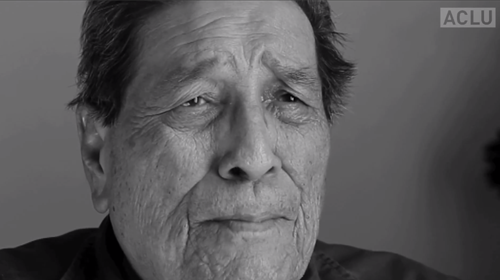
Today, there is a federal holiday in honor of Christopher Columbus, but in South Dakota, citizens celebrate Native American Day “dedicated to the remembrance of the great Native American leaders who contributed so much to the history of [their] state.” South Dakota’s unique celebration of Native Americans instead of Christopher Columbus is important and not without controversy. However, the controversy should be in celebrating Christopher Columbus.
Christopher Columbus is celebrated for “discovering” this land of ours that he thought was India. After landing here accidentally, he named the people he found already here “Indians.” This “discovery” had devastating effects for the so-called Indians (Native Americans) because the European settlers that followed needed land. Because of this, Native Americans were first pushed out of the East and later, the West. Through a series of notorious atrocities, including the Trail of Tears and Wounded Knee, the United States adopted an official expansionist policy of discriminating against Indians in favor of encouraging white settlers in their territories. This policy led to the subjugation, oppression, and death of many Native Americans. The effects are still being felt by Native Americans.


%3Ciframe%20allowfullscreen%3D%22%22%20frameborder%3D%220%22%20height%3D%22236%22%20src%3D%22%2F%2Fwww.youtube.com%2Fembed%2FVkLkTNzRd38%3Fautoplay%3D1%26version%3D3%22%20width%3D%22420%22%3E%3C%2Fiframe%3E
Privacy statement. This embed will serve content from youtube.com.
In honoring the history and culture of Native Americans today and every day, we work to recognize the dishonor in our past and help to remedy the discrimination against Native Americans today. In Winner, South Dakota, the ACLU represents a class of Native American students who were subjected to discriminatory treatment and a racially hostile environment in their school. In 2006, the ACLU filed a class action lawsuit against the school district. When the suit was filed, Native American students made up approximately 19 percent of the student population, but 100 percent of the students suspended out of school at the high school in 2003-2004 were Native American. Furthermore, in 2004-2005, 19 percent of the Native American students were referred to the police from school for offenses such as fighting, while only 1 percent of the white students were referred to the police.
The district’s hostile environment and disciplinary practices led to a large number of Native American drop-outs. But through the implementation of the Consent Decree and the recent efforts of the district, things have improved for Native American students in Winner. In the last two years, there have been no referrals to the police and the new superintendent has instituted a child-centered practice of handling most school discipline issues within the school. Graduation rates have increased significantly for Native American students. While work remains, progress has also been made and there is hope.
The students in Winner today are descendants of survivors of a war that began when Columbus “discovered” the world that was new to Europeans and victims of the discrimination that continued long after their ancestors were dispossessed. On this day, perhaps more than any other, we should be mindful of their history and our role in it. You can watch a video of our clients describing the school district, its treatment of their children, and their hope for the future of the district.
Learn more about racial discrimination and other civil liberties issues: Sign up for breaking news alerts, follow us on Twitter, and like us on Facebook.



